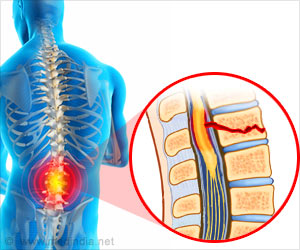Researchers reveal orexin's crucial role in deciding between physical activity and high-reward foods. Key to tackling obesity and sedentary behavior.
- Orexin is essential in choosing between exercise and snacking
- Mice with active orexin systems preferred exercise over sugary treats
- Insights into orexin could lead to better strategies for managing obesity
Sport or snack? How our brain decides
Go to source).
Orexin levels can significantly influence your choices between exercising and indulging in snacks. #medindia #obesity #exercise #orexin’
Orexin: A Key Player in Brain Chemistry and Decision-Making
Orexin, discovered about 25 years ago, is a key player among the brain’s many messenger substances. Unlike dopamine and serotonin, which are well-studied and known to influence various behaviors, orexin’s functions have only recently begun to be understood. Denis Burdakov, a Professor of Neuroscience at ETH Zurich, and his team have been at the forefront of this research, aiming to decipher orexin’s role in decision-making.Orexin’s Role in Decision-Making
To investigate how orexin influences our choices, the researchers conducted a sophisticated experiment with mice. In this study, the mice had the option to engage in physical activity on a running wheel or enjoy a sugary strawberry milkshake. The experiment compared normal mice with those whose orexin systems were either blocked by medication or genetically modified.The results were striking. Mice with an intact orexin system spent twice as much time on the running wheel and half as much time at the milkshake bar compared to their orexin-blocked counterparts. This finding suggests that orexin is crucial in deciding between exercise and snacking when both options are available. Without orexin, the mice leaned significantly towards the milkshake, demonstrating a preference for snacking over physical activity.
Implications of Orexin for Humans
These findings have significant implications for human health, particularly in the context of the global obesity epidemic. The similarities in brain functions between humans and mice suggest that orexin may play a similar role in our decision-making processes. The next step for researchers is to explore how orexin affects choices in humans, especially those with genetic conditions that alter orexin systems, such as narcolepsy, or those who use orexin-blocking medications for insomnia.Understanding how orexin influences our choices could lead to more effective strategies for combating obesity and related metabolic disorders. By developing interventions that target orexin pathways, researchers hope to help individuals overcome barriers to physical activity and make healthier choices.
Denis Burdakov’s team plans to research deeper into how orexin neurons interact with other brain areas involved in decision-making. This research could offer insights into why some individuals manage to resist temptations and maintain regular exercise routines, while others struggle.
As our understanding of orexin continues to grow, it holds promise for creating new approaches to improve public health and address the challenges of sedentary lifestyles and obesity. The journey from basic neuroscientific research to practical applications in human health is a crucial one, and ongoing studies will be essential in translating these findings into effective strategies for better health and well-being.
Reference:
- Sport or snack? How our brain decides - (https://ethz.ch/en/news-and-events/eth-news/news/2024/08/sport-or-snack-how-our-brain-decides.html)
Source-Medindia
















